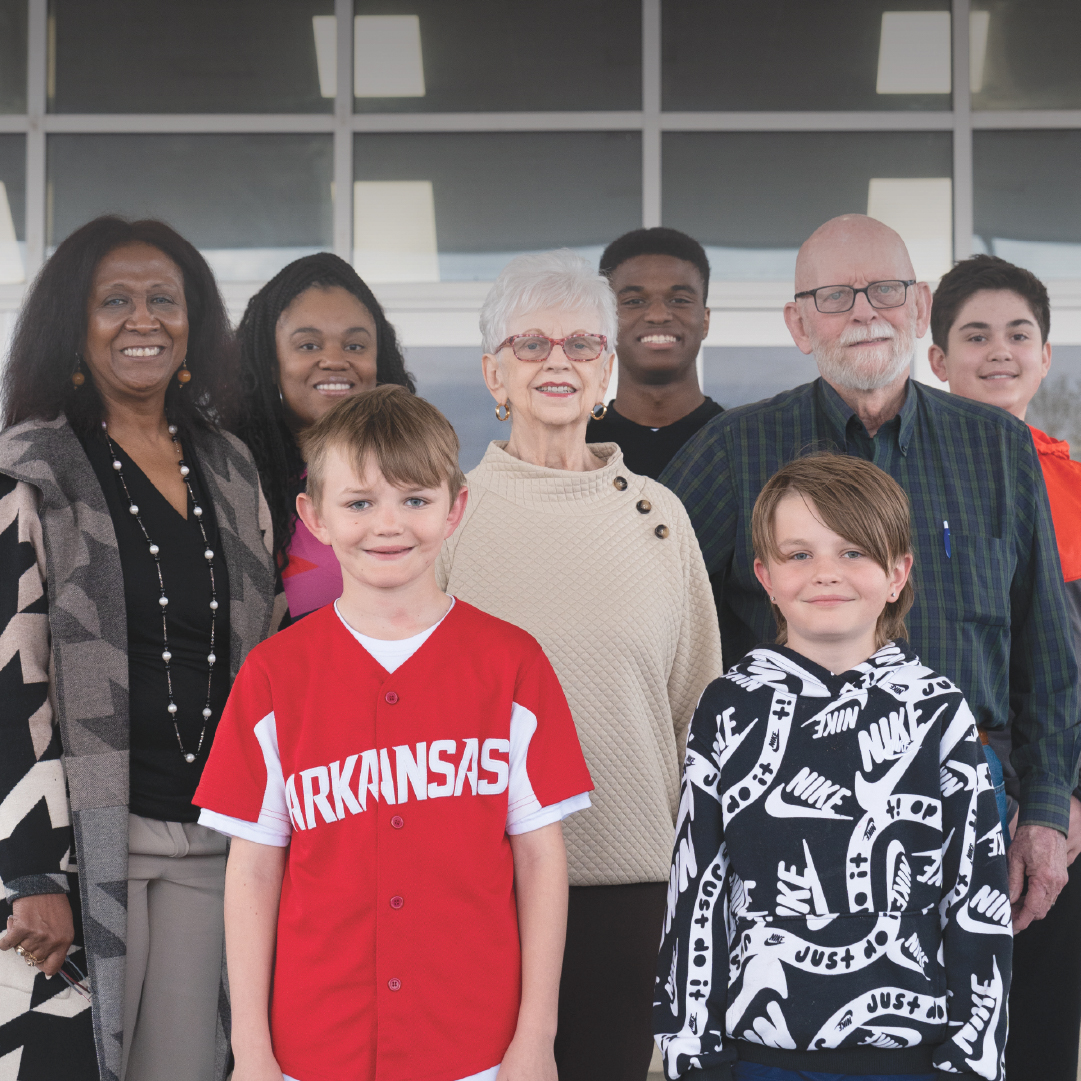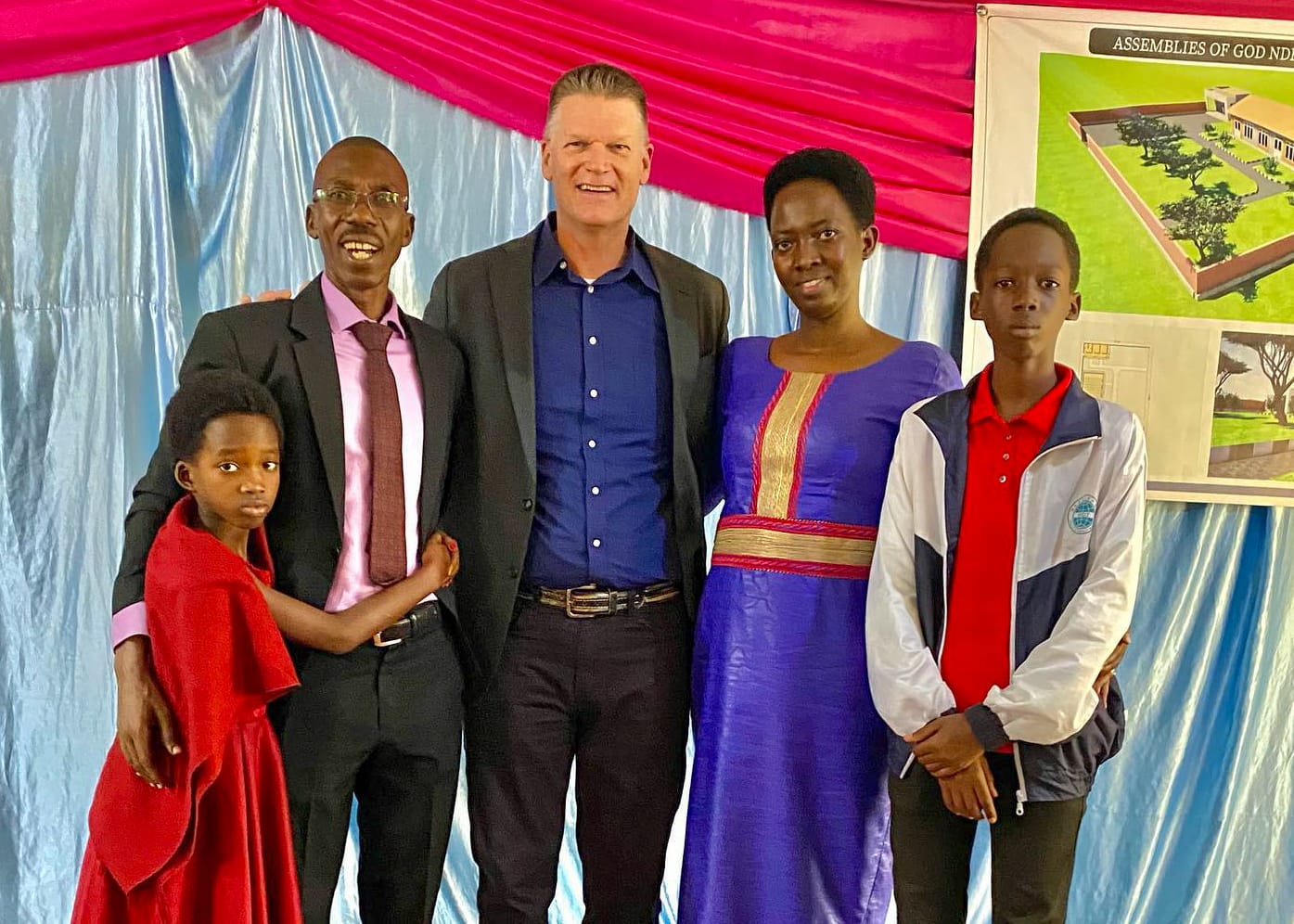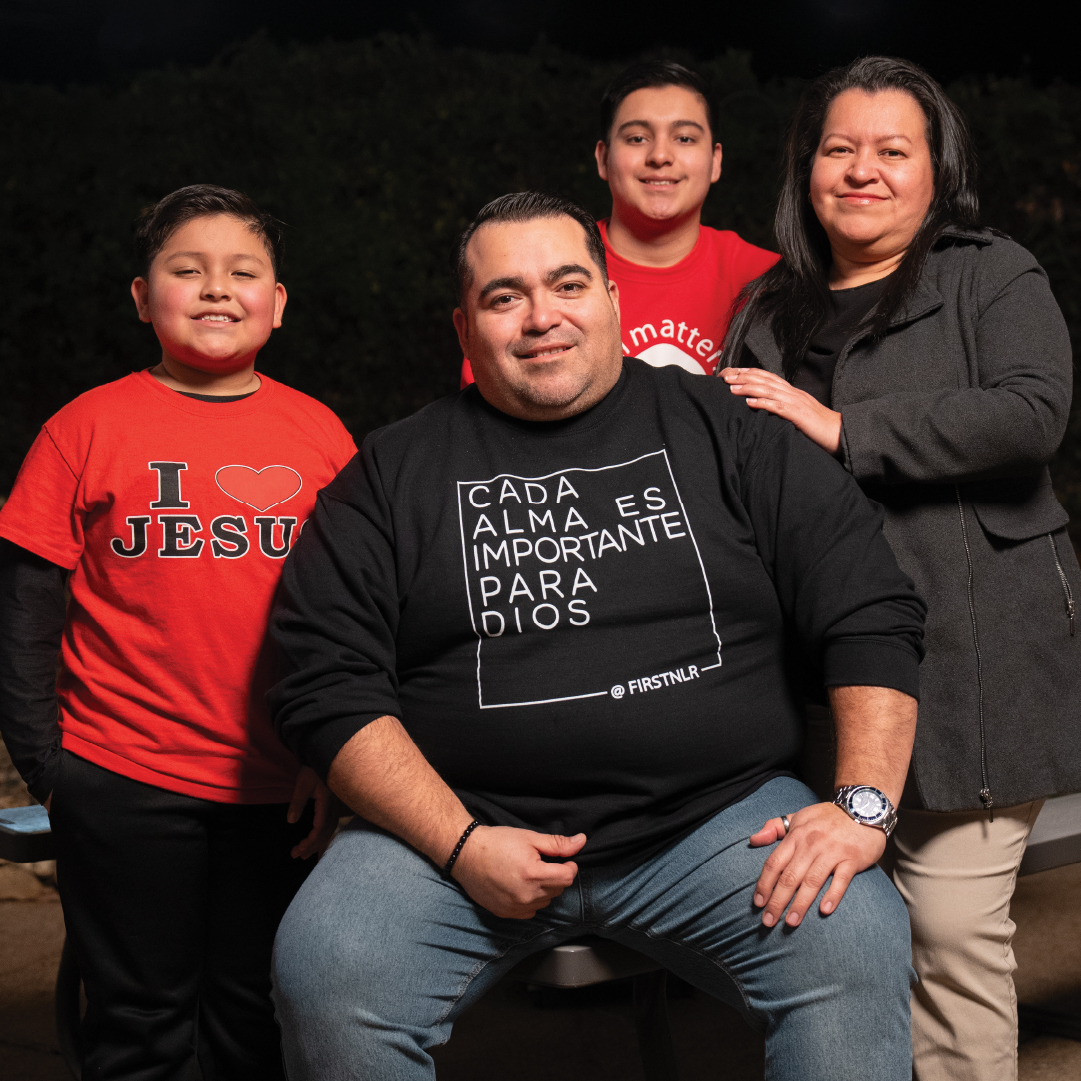Every Soul Matters to God
Recently, I spoke with Randy Jumper, one of the pastors at First Assembly of God North Little Rock. Our conversation covered a lot of ground, from First Assembly’s rich and storied history in their community to the impact of a statewide fatherhood initiative he helped launch to what it looks like to lead well in ministry and remain faithful as the winds of culture change.
A Century of Service
First Assembly has been around for a long time. For over a century, in fact. “Our church was founded by a group of women in the early 20th century,” Randy tells me. “It was a multi-ethnic church at its time, founded by African American and white ladies. Through the years, as North Little Rock grew, the church took on its unique identity.” That identity continues to this day, as Randy explains. “Currently, we have a high percentage of minorities on a given weekend.”

According to Randy, the church’s mission isn’t complicated. “I think the statement that epitomizes us as an organization and as a church is every soul matters to God. That’s our driving value. We think the mission of the Church has been pretty well defined. Anybody who comes up with a mission statement other than what Jesus gave us in Matthew 28 is wasting their time. Our goal is to communicate that every soul matters to God, whether you’re white, black, Asian, Hispanic, whether you are a Democrat, Republican, somewhere in the middle, or someone just mad at everybody else. Low income, high income, no income, every soul matters to God because a soul is a soul is a soul.”
The church has seen significant growth of late. “We’ve grown to seven campuses around the country, most of them in Arkansas, with one in New York,” Randy shares. One of the most significant decisions the church ever made was to remain in its current location rather than relocate. “We were at capacity and had to decide whether to purchase land and build or stay and expand,” Randy explains. “We chose to stay, and this has led to the creation of multiple campuses and services, allowing us to reach more people without losing our connection to the community.” This decision has allowed the church to maintain a rooted presence in North Little Rock while expanding its reach outward.

Currently, the church supports over 220 ministries and missionaries around the world. “We have extensive involvement in international missions, including a major partnership with the nation of Rwanda,” Randy tells me. “This partnership is focused on a variety of projects that are making a significant difference in the lives of people there.”
Dads Getting Better Every Day
During our conversation, I wanted to learn about Randy’s involvement in the statewide fatherhood initiative that started at the church and addresses the crucial role of fathers in families and communities. “Most of us in the church world are aware of the damaging impacts of the fatherless generation,” Randy remarks. “There is a dearth of engaged fathers, but there’s also an abundance of men who want to lead their families well.”
The fatherhood initiative aims to bridge this gap by providing support and resources for fathers. “We wanted to stop throwing rocks at dads who aren’t here because they’re not here,” Randy explains. “Instead, we try to link arms and grab the hands of the dads who are around us.”
This approach led to the creation of Arkansas Better Dads, a statewide program that Randy helps launch. “Arkansas Better Dads was a program facilitated through the state of Arkansas and currently housed in DHS,” he says. “Dozens of organizations and churches across the state are using the program now.” The concept behind the program is for dads to be better than they were yesterday. “You don’t have to be an all-star, homerun, amazing guy. But what you can be is getting better every day.”

Randy emphasizes the importance of providing fathers with the necessary tools and support. “[We have] good men who want to be great dads but don’t know what to do,” he explains. “Success is helping men realize they might be better fathers than they thought and giving them pathways to engage more effectively with their families.”
The initiative focuses on practical and relational support, offering workshops, mentoring, and resources to help fathers develop the necessary skills and confidence. “We recognize that many men didn’t have good models of fatherhood,” Randy notes. “Our goal is to provide them with the tools and encouragement to be the best fathers they can be.”
The impact of the fatherhood initiative is far-reaching. “We’ve seen tremendous growth and engagement from fathers in our community,” Randy shares. “Men are stepping up, becoming more involved in their children’s lives, and building stronger families as a result.” You can see this change in the many thankful men who received the much-needed support and guidance they received from it to be better men, husbands, and fathers.
Leading in Ministry
Randy is sharp and insightful, especially when it comes to leadership. “Leadership is about managing disappointments,” he tells me. “Good leadership is knowing who to disappoint and when because you can’t do everything. You can only do what the Lord has asked you to do,” he states. “Sometimes, that means disappointing people because you can’t meet all their demands.”
Randy also highlights the significance of deep, meaningful relationships for pastors. “Most pastors have a lot of surface-level relationships but very few deep friendships,” he notes. “[Those deep friendships are] an important part of sustaining oneself in ministry.”

In terms of practical leadership advice, Randy shares some that he received from a mentor. “One of my mentors, Pastor Reta, taught me that at the end of the day, I need to be at peace with what I’ve done before the Lord and my primary leader,” he recalls. “Everyone else has to fall in line with those priorities.”
Along with that, Randy says that “building strong, genuine relationships with your congregation is essential for pastors. People need to know that their pastor cares about them and is invested in their lives.” However, churches also need to care for their pastors. According to Randy, “I think the basics are the basics. I think praying for your pastor is significant. I think putting less pressure on immediacy is important. I appreciate that when our congregation asks for stuff, they don’t do it in a high-pressure way. I think understanding that your pastor and his family are normal people. I think that’s very helpful. They have the same challenges, same struggles. They still have to get their oil changed. They still have to work through what happens when their kid gets detention at school. They’re just normal people like everybody else.”
Adapting to a Changing Culture
When discussing the changes we see taking place in our culture, Randy is quick to acknowledge that this is nothing new for the Church. “Culture changes and the world shifts, but this has always been the story of the Church. Our job is to remain faithful to God and His truth, no matter how the culture changes.”
He stresses the importance of distinguishing between essentials, traditions, and opinions. “Essentials are non-negotiable, like gathering together for worship and discipleship,” he explains. “We have traditions. They’re an important part of the Church. Then there are essentials. We won’t compromise essentials. We will honor them today, and we’ll honor traditions to the point where they don’t violate essentials. Traditions and opinions are flexible and should not be elevated to the level of essentials.”
Overall, the Church should aim for balance in its approach. “We need to be willing to innovate and adapt while staying true to our core values. We should never be afraid of technology. It’s just another tool to be redeemed by the kingdom and the gospel. This balance allows us to remain relevant and effective in our ministry.”

Unity in a World of Division
During our conversation, Randy also highlighted the collective impact churches can have when they work together. “Anytime you can build relational networks among churches, it’s helpful. We recently did a major multi-church outreach with about 16 churches involved. Seeing different congregations work together towards a common goal was truly inspiring. We couldn’t have done that without collaboration.”
Collaboration, as Randy tells me, is also great for sharing resources and expertise. “Pooling our resources and knowledge enables us to address needs more effectively and reach more people with the love of Christ.” This collaborative spirit is essential for maximizing the impact of ministry efforts. Overall, Randy believes that when churches work together, it’s a powerful example of true unity. “In a world where there’s so much division, doing something intentionally unifying is a great testimony for the Church.”
We are thankful for the exceptional work of First Assembly of God North Little Rock and for all the churches in our city working toward a genuine unity that displays the love and beauty of Christ. They’re helping the whole Church grow.
Speaking the truth in love, we will grow to become in every respect the mature body of him who is the head, that is, Christ. From him the whole body, joined and held together by every supporting ligament, grows and builds itself up in love, as each part does its work.
Ephesians 4:15-16


